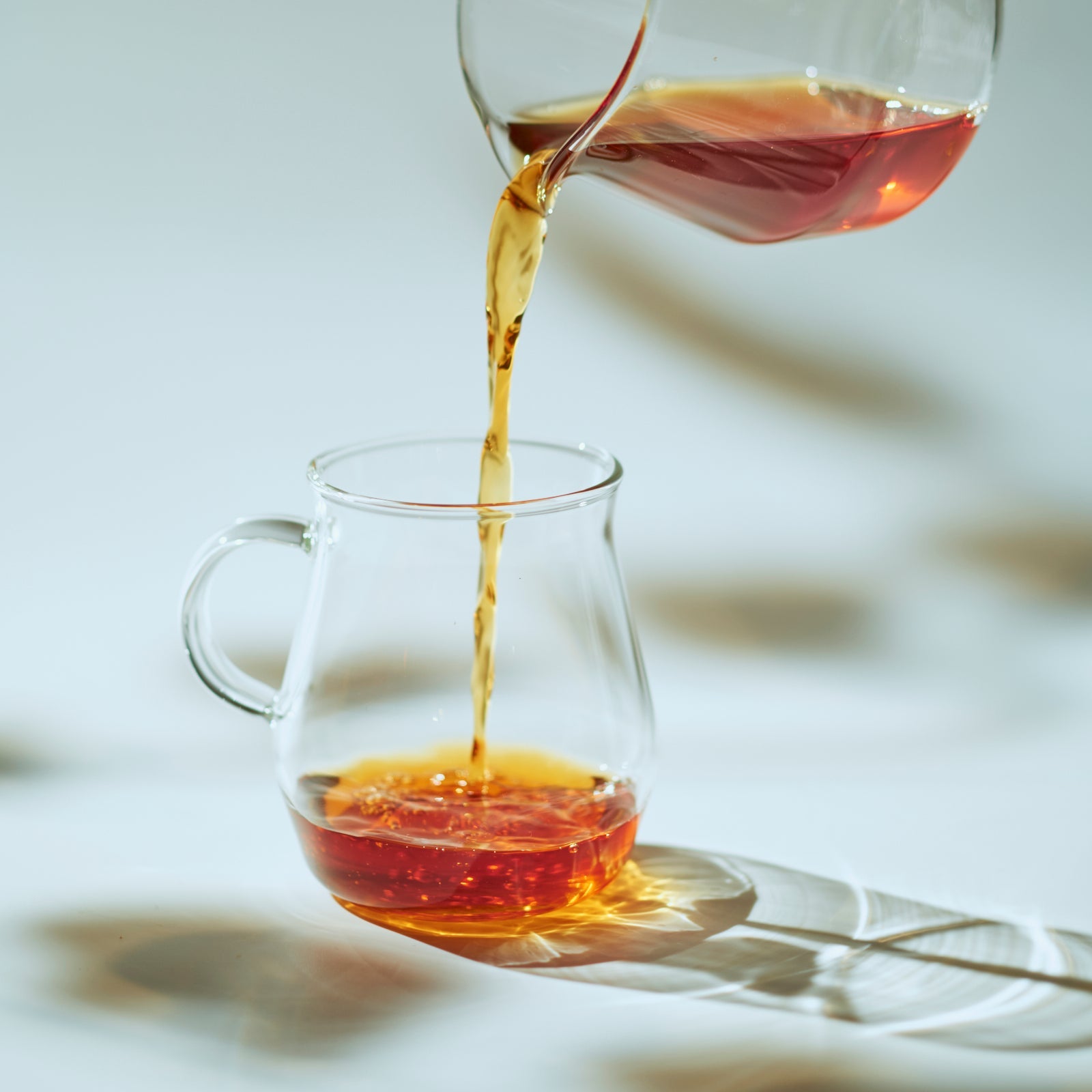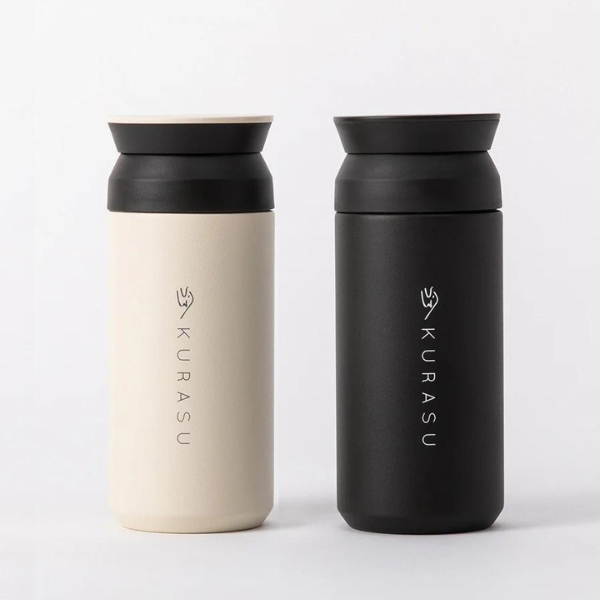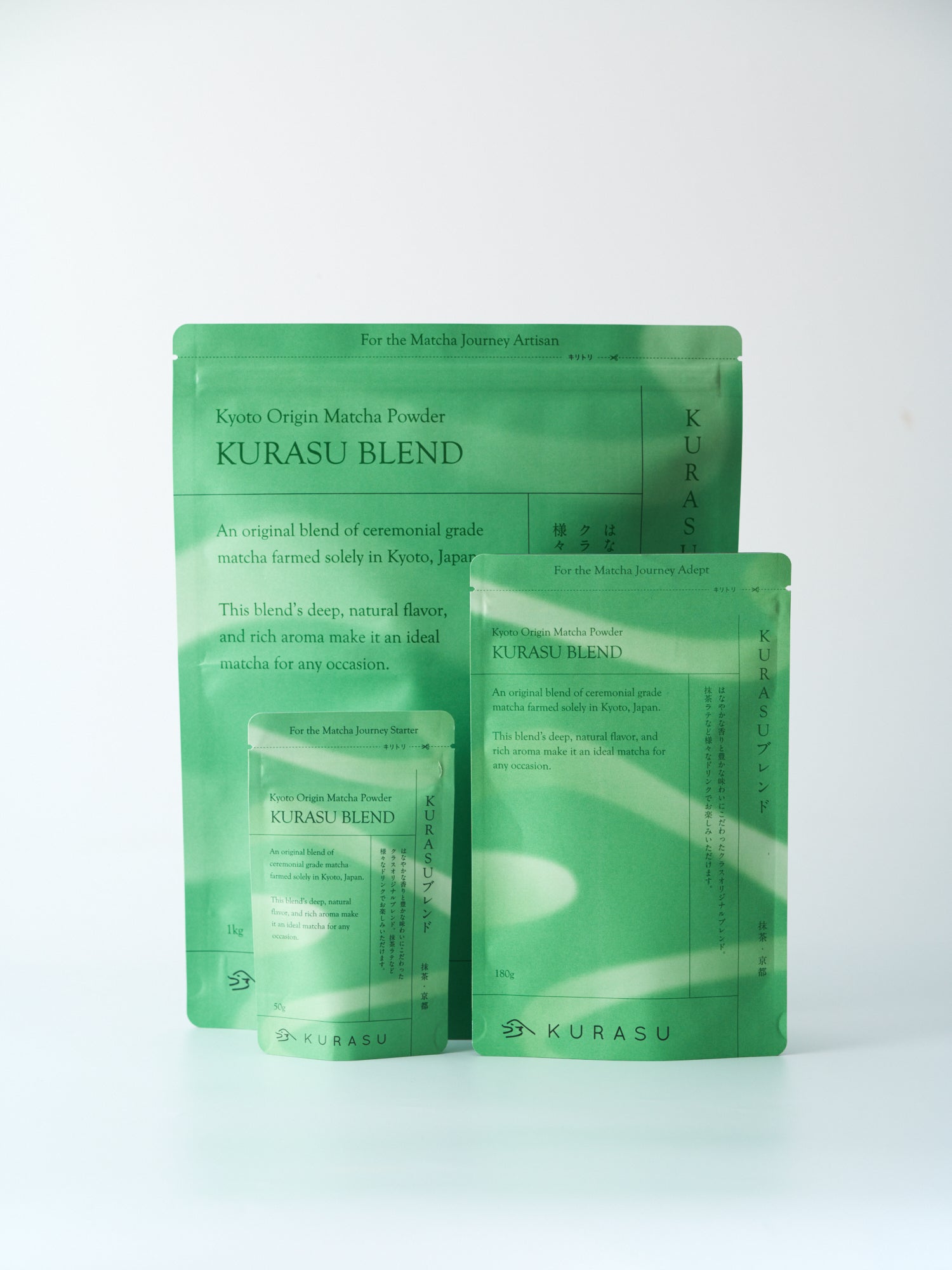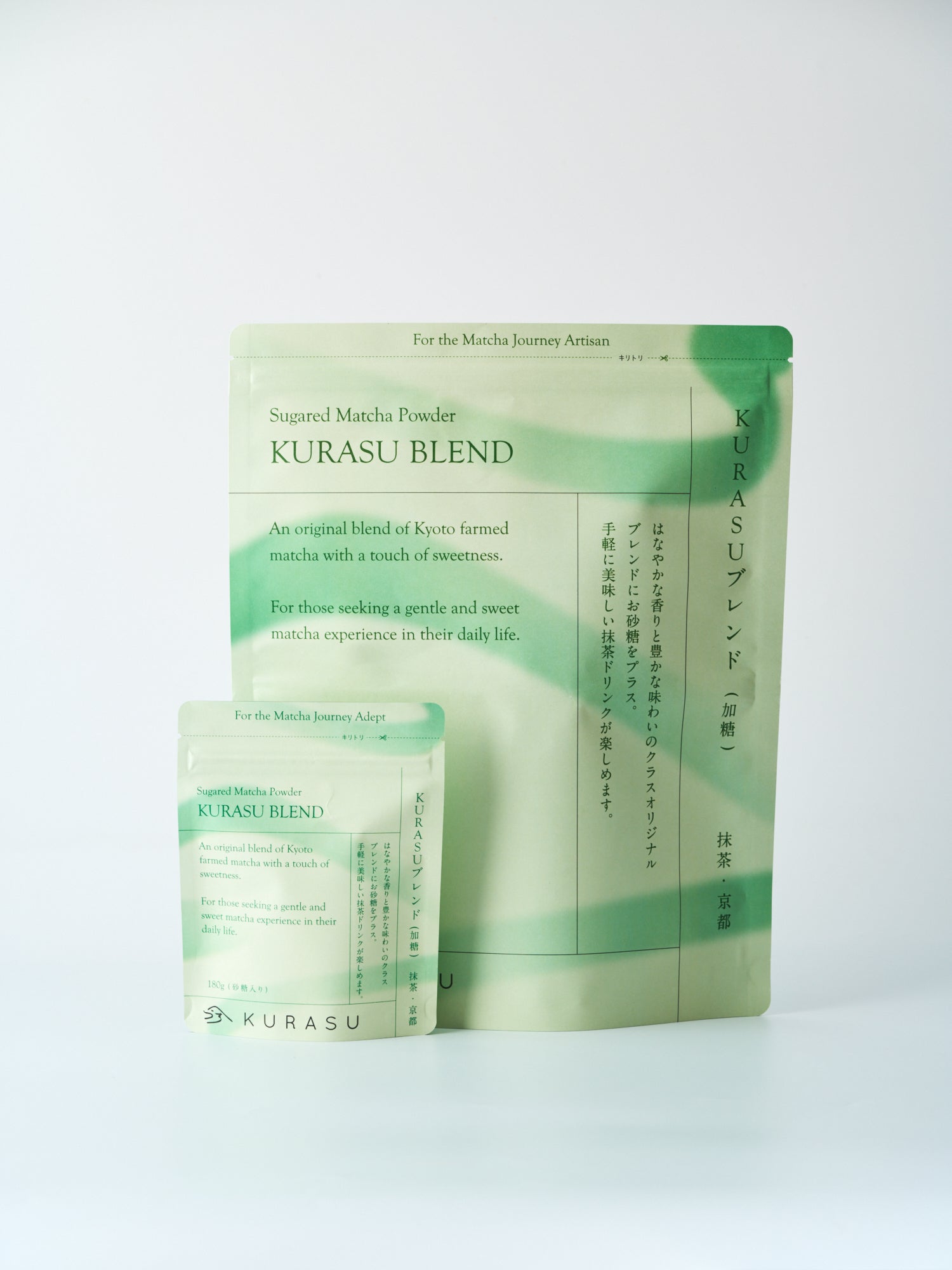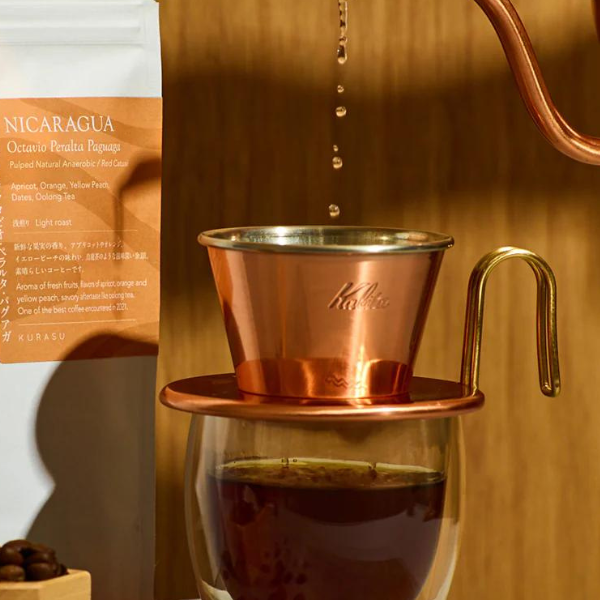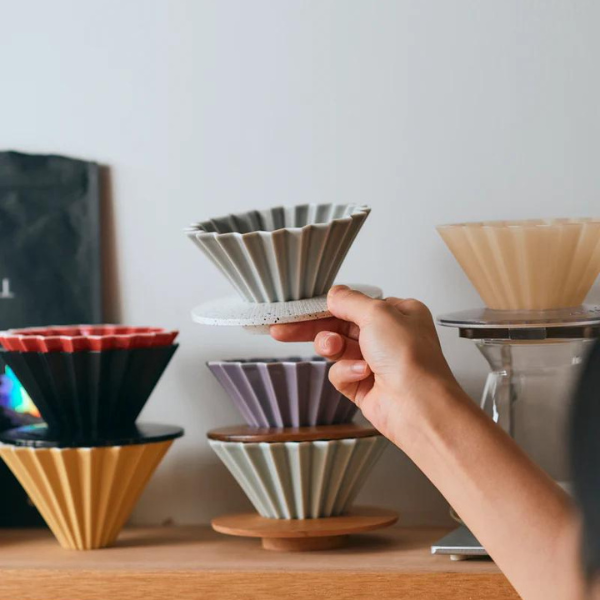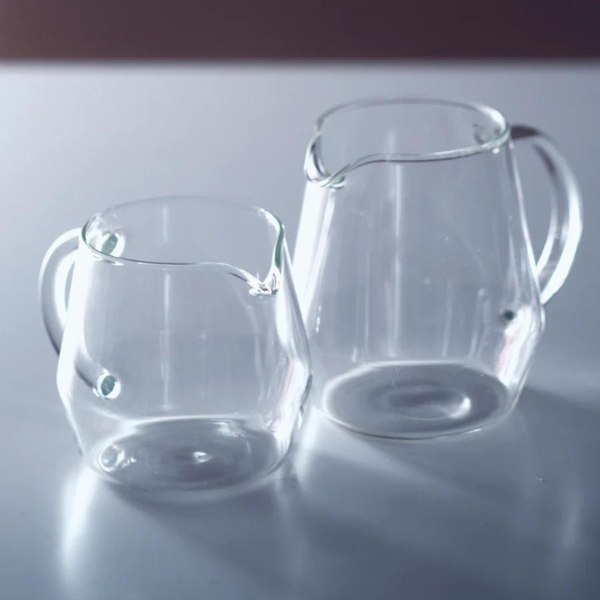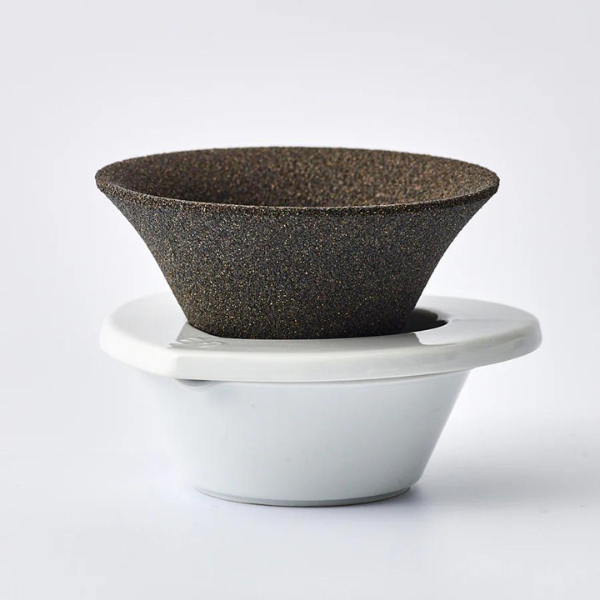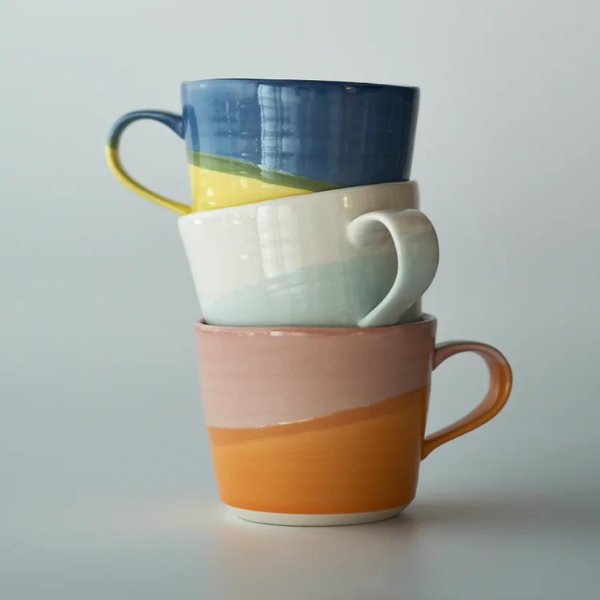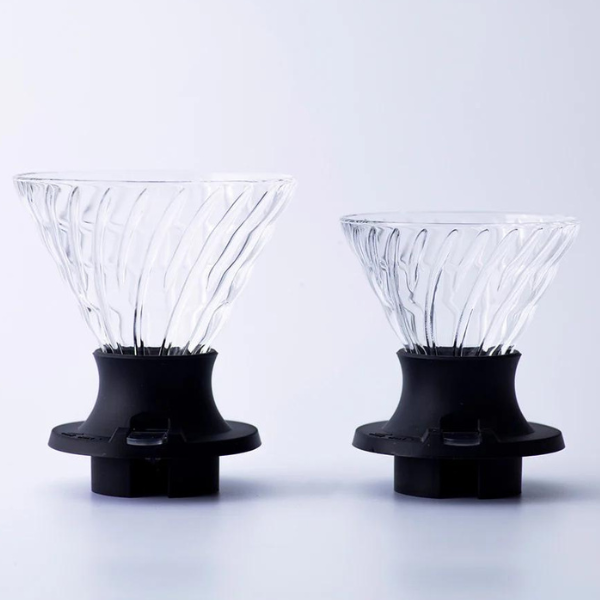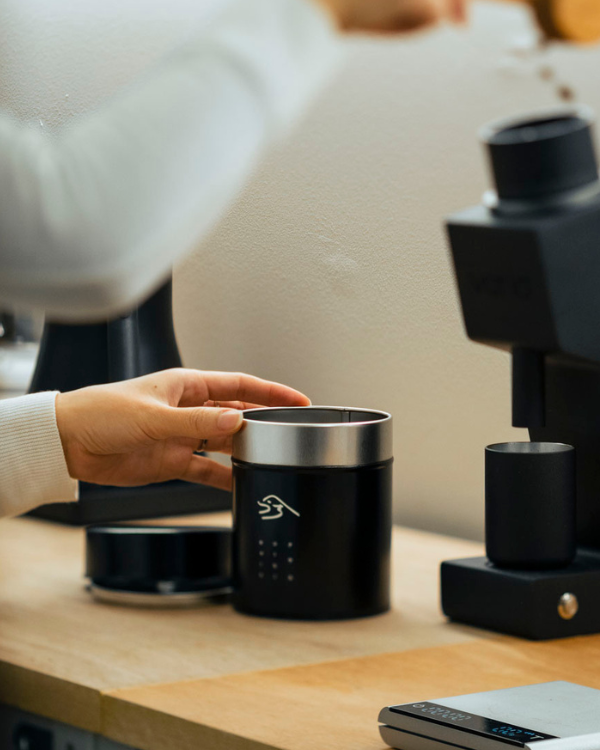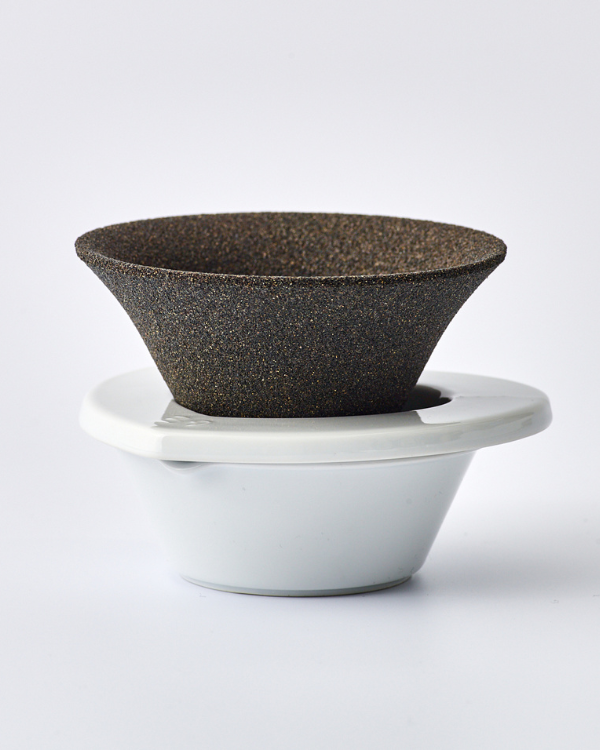Grounded in Kindness, Shaped by Encounters, Driven by Challenge
Have you ever noticed how, even when the same beans are brewed using the same method, one person’s coffee somehow feels more comforting? In those moments you realize there is something intangible, a barista’s touch or sensibility, that shapes the experience. What we call “delicious” may not be only about flavor on the tongue. When taste, comfort, people, and small moments come together, a single cup of coffee can truly stay with you.
Rina Tamura began her career at Blue Bottle Coffee during its early days in Japan, later worked at La Cabra in Denmark, and joined Kurasu in 2024. Throughout her journey she has always valued creating coffee that carries a sense of kindness, a cup that allows people to feel at ease.
Her career has spanned cultures in Japan and abroad, guided by her passion but also shaped by the realities of turning that passion into a profession. Along the way she has kept asking herself how to balance kindness, growth, and everyday life. In this story we follow Rina’s path and explore how she has managed to maintain that balance.

A Cup in an Unmarked Cafe Opened the Way to Coffee
What first inspired you to pursue a career in coffee?
At the beginning, I actually wanted to work in design, not coffee. I studied English at university, but during my student years I took time off and went to study abroad in San Francisco. At that point I never imagined becoming a barista. To save money for the trip, I worked part-time at Tully’s Coffee, where one of my tasks was handing out samples brewed by hand drip. I hadn’t really been able to drink black coffee before, but that hand-dripped cup surprised me. I still remember thinking, “Wait, freshly brewed dark roast can taste this good?”
Around that time the assistant manager at the café gave me a magazine. I think it was the 2012 issue ofBRUTUS titledThe Evolution of Delicious Coffee.
That’s a throwback - 2012!
Yes, it featured so many coffee shops in LA and San Francisco, and I was fascinated by that world. Back then I dreamed of becoming a designer who could create the kinds of ads I saw in the magazine - carefully chosen fonts, visuals that carried a story. So I decided to take design classes at a local college, learning silk-screening and letterpress printing. It was incredibly fun.


Naturally, I began visiting the cafés that had appeared inBRUTUS. One of them was Blue Bottle’s original shop, long before they came to Japan. When I went, there was no sign outside, just the blue bottle logo, and yet there was already a long line of people. I ordered a coffee from El Salvador. I can still recall that taste clearly today. It was so good, and I thought, “Coffee can be something that stays with you like this.”
After a year abroad I returned to Japan, resumed my studies, and started job hunting. Honestly, I felt very uncertain about my future. Then in 2015 I heard that Blue Bottle would be opening their very first shop in Kiyosumi Shirakawa. I had no barista experience and thought I probably didn’t stand a chance, but I decided to apply anyway.

So in the end, that became one of your formative experiences. Was it the time abroad that made the biggest impact?
Yes, definitely. At Blue Bottle I felt the kind of atmosphere I had been searching for in Japan. I wanted to experience that space again. It also came at a time when my passion for design was starting to shift. I realized that “what you love” and “what you do for work” don’t always align, and that coming up with ideas was harder than I imagined, that my perspective sometimes felt off. Those frustrations piled up, and I started asking myself whether continuing with design was a matter of pride or true calling. In the end I chose to let go of design, at least for the moment.
Even so, I believed that what I learned in design would be useful somewhere down the line. More than that, I was being pulled deeper into the world of coffee. Coffee had a mysterious charm that made me want to keep exploring it.
I really relate to that.
Another reason I chose coffee was the people. I thought, “Design is something I can always come back to later, but the people brewing coffee here - I can only meet them now, I can only work alongside them in this moment.” Watching the baristas at Blue Bottle gave me that feeling. Part of what makes being a barista so enjoyable, I think, is that sense of camaraderie.
For me, it all came together - the desire to dive deep into coffee and the realization that the right time was now.

Blue Bottle as a company also inspired me. It began with founder James Freeman roasting coffee in his garage, which grew into something much larger, yet the founder’s vision is still carried through today. They design spaces that keep the focus on coffee - keeping signage simple, placing espresso at the very top of the menu because they take pride in it. That kind of design, grounded in intention, felt incredibly cool to me.
A Barista Career Inspired by the People Beside Me
So that’s when you joined Blue Bottle?
Yes. I told myself I’d rather regret trying than regret not trying, so I went into the interview saying, “I want to work at the very first shop in Kiyosumi Shirakawa.” And they accepted me. Later I heard the reason was that they wanted someone who truly understood the impact of seeing that first store, someone who carried that same sense of excitement and love.
Six years at Blue Bottle might sound like a long time for a barista, but for me the time passed in a flash. It was a place where I could keep growing and still genuinely want to stay.

After that, what led you to Denmark?
While I was working at Blue Bottle, I often went coffee-hopping in different places. Around that time, the Danish coffee brandLa Cabra held a pop-up in Japan. I tried a coffee there - the variety was Sudan Rume - and I still remember the shock of that first sip. I thought,“Wait, this is coffee?!”
I later found out that I could sign up for La Cabra’s subscription even from Japan, so I joined right away. Their coffees were fascinating, many of them very light roasted and quite bold in style. Even back then I found them exciting and unlike anything I had tasted before.



As I kept following La Cabra, I found out that the owner would be coming to Tokyo for a pop-up. When I went, he actually remembered me - and even knew that I was subscribed to their coffee. He casually said, “You should come to Denmark anytime,” and that kind of openness felt so refreshing. It made me start thinking,“Maybe I should see Denmark for myself.”
Up until then, I had never really traveled alone. I didn’t know much about Denmark at all, but I decided to use my vacation time and just go. About five hours by car from Copenhagen there’s a small rural town called Aarhus, and that’s where La Cabra is based. When I visited their original shop, the staff welcomed me with this warm, friendly energy, almost like,“Oh, you’re a regular - welcome!” It immediately felt like home.


La Cabra was such a deeply local shop. Everyone drinking coffee there looked genuinely happy, and I couldn’t help but think,“What is this world?!” I was moved in the purest sense. No one was staring at their phones, no one got upset even if the checkout took a while. One of the baristas I met there casually said, “If you’re free later, let’s grab some wine,” and ended up showing me around the town. I remember feeling with all my heart,I want to work with people like this.
When I returned to Japan and decided, “I’m going to Denmark,” a wave of self-doubt about my barista skills hit me. So I chose to spend that time honing my craft before heading abroad. That’s how I started working atabno, a café in Bakurocho that used beans from the Danish roaster Coffee Collective. I thought it might be the perfect preparation before a working holiday in Denmark. Up until then, I only knew the Blue Bottle way of doing things, so I also wanted to gain broader experience and develop more creativity in how I approached coffee.
Working at a different café turned out to be invaluable. I learned entirely new perspectives - how to evaluate flavor, how to approach aging. Every day I found myself asking “Why?” and then discovering, “So that’s why.” That constant cycle of questioning and understanding really expanded the way I thought about coffee.
Just as I was finally ready and mentally prepared to leave, the COVID-19 pandemic hit. I was in my late twenties at the time, and the age limit for working holiday visas was closing in, so I felt a real sense of urgency. I even started to wonder if I should consider another path altogether in case Denmark didn’t work out.

Coffee, People, and Learning to Grow Together
The pandemic gave many people time to pause and reflect, didn’t it?
Yes, it did. At the time, Blue Bottle was preparing to open Shiraiya Café in Gunma. Up until then we had opened shops in Tokyo and Kansai, but never outside those regions, so it was a first. With COVID in the background, I was also beginning to feel worn out by life in Tokyo - like I was always rushing forward. One day I stopped to think,after all these busy days, what’s really left with me? and realized I couldn’t recall much at all.
I knew I needed a change of environment, so I decided to move and applied for the opening team in Gunma. I was accepted, and with that transfer I also took on the role of lead barista, stepping into management. Supporting other people’s growth was something I had always felt unsure about, but I wanted to see it as a chance to challenge myself and grow my own career. The team at the time was mostly beginners, so in a way I had no choice but to take on the responsibility.
At first I struggled with how to communicate and support them. But through trial and error, I realized that my resistance to management came from a belief that I had to “teach” people. What I found instead was that it’s about running alongside them, supporting their growth, and celebrating their progress. That shift gave me a new perspective - and a genuine sense of joy in helping people grow.

At that time, Blue Bottle also held an in-house competition where the winning drink would be added to the menu. I entered and my cocktail won - it was called Jasmine Cascara Immersion.
That’s amazing!
Thank you! After that, I also took part in the company’s latte art competition. As a barista, tasting skills are of course essential, but I also believe the ability toshow is just as important. I enjoy swan designs, but I also love the delicate precision required for patterns like leaves and rosettas. In latte art competitions, the judging criteria include balance and symmetry. Swans look striking, but they’re notoriously hard to execute cleanly, so they’re considered more difficult to score highly with. That’s exactly why I chose to compete with a swan - and I ended up placing third.
Those experiences gave me a real sense of satisfaction, not just with the results but with the effort and growth behind them. With that confidence, I finally felt ready to take the leap and go on a working holiday.

You spent a year in Denmark. What made you decide to return to Japan?
Living in Denmark was wonderful - the slower pace of life made me want to stay longer. But in terms of pursuing coffee more deeply, I eventually felt there was less meaning in remaining there.
With a working holiday visa, you can only work for six months. Even within that short period, I was trusted with the role of head barista and surrounded by supportive colleagues. Being recognized and valued in that way was incredibly rewarding. It was during that time that I realized once again just how much I truly love coffee.
Through that experience abroad, I came to realize - in a good way - that at the end of the day I am very much Japanese. Part of me seeks growth through work. Denmark was wonderfully free, and that freedom was appealing, but I discovered that I might be better suited to a style where you find freedom within a certain amount of structure. I also realized that the diligence often associated with Japan can actually be seen as a strength overseas.
Do you feel that the environment and relationships at La Cabra continue to influence you today?
Absolutely. Maybe it’s a Danish trait, but many people there seemed a bit reserved at first. Yet once they opened up, the connection could go very deep. Just going out for a drink once could lead to a strong friendship.
One person I grew especially close with was Adam, the head barista at the time. Looking back, he embodied the archetype of an “international barista” - outspoken, direct, unafraid to confront rude customers. That straightforwardness felt refreshing to me, and I really admired it.

Adam originally aspired to be a painter, and when he decided to devote himself fully to art, he recommended me as his successor for the head barista role. When I dialed in espresso at La Cabra, he recognized that I had a good sense for tasting and told the owner, “Rina can be trusted with this.” That experience made me realize how important it is to have the ability to align on taste, especially when working internationally. Adam and I are still close, and we’ve even promised that if I open my own shop one day, he’ll hold a solo exhibition there.
Another cultural difference that left an impression on me was how many baristas had second jobs outside of coffee. It wasn’t seen as being less professional - in fact, it often created synergy. At La Cabra, almost everyone had a second job. Some, like Adam, worked as artists while being baristas, and others were studying law while working in the café. Even the owner of La Cabra was an artist, with a deep passion for music and visual art. That sensibility came through in the atmosphere of the shop, which I loved.

What also struck me was the openness around moving on - almost a culture of “graduating” with a smile, whether it was stepping up to the next stage as a barista or devoting more energy to a second job. It felt very characteristic of working abroad. And of course, the fact that people would still come back as regulars afterward, staying connected as part of the community, was something I found really beautiful.
Supporting a Team Through Strength and Softness
After returning to Japan, how did you come across Kurasu?
At first, I looked for job opportunities in Tokyo, since it’s close to home, but I couldn’t find a place where I truly wanted to work. After six years at Blue Bottle and time at La Cabra, I had already defined my own style as a barista, and the way I wanted to engage with coffee felt clear.
Some of my barista friends recommended cafés where precision brewing was pushed to competition levels, but something about it didn’t feel right for me at that time. Instead, I felt like I needed to set out on a kind of “journey to encounter what was meant for me.” I chose places based on where I thought I’d like to live, and that path eventually brought me to Kyoto.
Kyoto reminded me a little of Denmark. It carries a sense of openness, of space to breathe, and a lifestyle that allows you to value everyday living. At the same time, it is also a craftsman’s city, which resonated with me as someone who wants to live through handwork.

What was your first impression of Kurasu?
To me, Kurasu felt like a blend of both La Cabra and Blue Bottle. It has a proper organizational framework, but at the same time, it tries to keep a sense of freedom. Maybe that’s why, after La Cabra, I felt instinctively that this was where I wanted to work.
What makes Kurasu unique is that freedom - the ability to fail, the chance to take on challenges, and the sense that the company moves forward as a team. Everyone brings their own individuality, which makes it a workplace where it’s easy to feel motivated. Right now, we’re in a phase where we’re trying to clearly define things that were previously left to intuition, like organizational structure or the skills expected in each role. It’s less about strict rules and more about clarifying the kind of people we want to be, so that everyone can align on the same vision. With so many new teams being formed, it feels like the company is growing, and it’s also a good moment for me personally to experiment with balance and keep learning.
From July I’ll be taking on the role of manager at the Ebisugawa shop, and I really want to work hard together with the team there.
Do you have a vision of the kind of manager you want to be?
Management is definitely challenging! But if I had to name one thing, it would be to never step away completely from the floor. I think it’s important to stand behind the counter sometimes, to be present for both customers and colleagues. That way, I can really be there for them. And kindness - that’s my personal theme and one of the values I want to live by.

In what situations do you hope to consciously bring out that “kindness”?
As a manager, I think being present on the floor and giving people a sense of reassurance is important. It’s about softening the atmosphere. Some might imagine the ideal barista as someone who wins competitions and proves their skill, but I believe kindness and discipline can coexist. The baristas I look up to embody that balance - they have their own style while also embracing both the team and the customers. That’s the kind of person I want to be.
People often tell me, “You’re kind,” and sometimes I’ve wondered if that’s actually a weakness. Am Itoo kind? Kindness can be a shield that protects others, but it can also become harmful if misused. Because I know that, I want to keep kindness at the center of who I am. I want people to think, “Every cup she makes feels gentle.” I want my coffee to give people that sense of ease.
I see kindness as both my greatest strength and my biggest weakness, so from here on I want to make sure it shines as a true strength.
Balancing kindness and discipline isn’t easy. How do you approach it for yourself?
For me, hospitality is directly tied to kindness. Kindness is also empathy, and with empathy comes the ability to notice things earlier than others. That’s what makes it so valuable in customer service.
Tasting and adjusting flavors is similar. It’s not about forcing everyone to match a pre-set answer, but about allowing a shared answer to emerge through the process. At Kurasu, people come with many different backgrounds, and by crossing those perspectives, I find new realizations within myself too. Even in something as simple as sharing tasting notes, I think the most important thing is the willingness to empathize.

Being a barista is challenging, but that’s also what makes it so fascinating. When you think about why someone might say, “I want to see that person,” it really comes down to how each individual carries themselves. At Kurasu, it’s not just about the brand - every barista shines in their own way, and I believe that’s what creates true fans of Kurasu. And it’s not only the baristas. Even among the office members, I feel Kurasu naturally attracts kind people. That’s why I believe that, as long as we continue to take the time to align with each other, the company will keep building a good culture and structure.
What kind of presence would you like to have within Kurasu?
After returning from Denmark, there was a time when I considered going independent. But I realized I still have room to grow. I wanted to challenge myself with responsibility inside a dynamic organization, and to build experience in management. Who I am today is thanks to all the people I’ve worked with - the assistant manager back in my Tully’s days, the baristas at Blue Bottle, the staff at La Cabra. It might sound like a simple or obvious answer, but within Kurasu I want to be someone who gives a sense of reassurance, someone who can blend into the atmosphere and embrace others like the air around them.
Thank you so much for your time today. We hope your unique journey of “kindness in challenge” continues to inspire many more people.

After the Interview
“Kindness.” “Growth.” “Everyday life.”
These are the words that stayed with me as I reflected on my conversation with Rina Tara. Each one is beautiful in sound, but also abstract - words that naturally raise questions like,What exactly is kindness? Perhaps there isn’t just one answer, and perhaps the meaning changes over time.
We met for the interview after work on the second floor of Kurasu Ebisugawa. It was scheduled for an hour, but the conversation flowed and stretched into an hour and a half. Listening back to the recording, I could hear the heavy rain pounding on the roof - more like a sudden downpour than a passing shower - a reminder that it was the middle of Japan’s rainy season on June 10.
I finished writing this piece on July 1, as the rainy season was drawing to a close, though the sky didn’t quite feel like summer yet. At the end of the recording, I asked Rina about her favorite coffee. Her answer was Kenya. Among baristas, Kenya in the summer feels almost like a seasonal word - a taste that brings comfort, especially as an iced coffee.
When Rina said that Kurasu feels like something between Blue Bottle and La Cabra, connecting it to her own formative experiences, it caught me by surprise. It made me pause. And it made me want to keep visiting Ebisugawa, to sit with Rina and her team, and to enjoy more of their delicious coffee.

(photo: Ai Mizobuchi / text: Jongmin / translated by Yozo)

